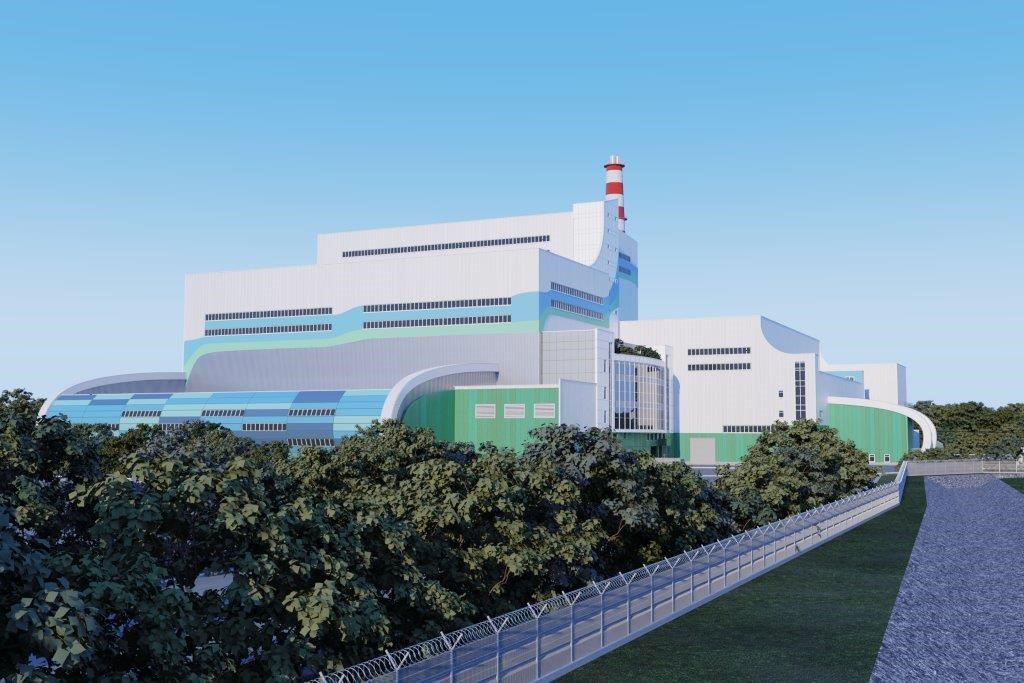Moscow to Have EfW Plants at all Cardinal Points

The contract to build two more EfW plants in the Moscow area marks yet another success for Hitachi Zosen Inova in Russia and a move that brings the country a major step forward in terms of implementing its program to landfill diversion, increase recycling and promote renewable energy. The plants will treat around 2.8 million t/a of household and municipal waste to supply 1.5 million people in the Russian capital with electricity.
On 28 September 2020, Alternative Generating Company (AGC-1) gave Hitachi Zosen Inova (HZI) and its Russian consortium partner, Atomenergomash subsidiary ZiO-Podolsk, notice to proceed with the construction of two additional energy-from-waste (EfW) plants in the Moscow area. Following contracts for plants in Voskresensk (to the south) and Naro-Fominsk (to the west), construction of the two latest installations in Noginsk (to the east) and Solnechnogorsk (to the north) will take the total to four. Together these plants will play a key role in efforts to discontinue the use of landfill and implement Green Tariff, a nationwide programme launched in 2017 to promote renewable energy.
“EfW plants are the most high-tech projects of RT-Invest, and we selected the best technolo-gies for their implementation. Together with Hitachi Zosen Inova, a high-level international part-ner, we will build 4 plants with a total capacity of 2.8 million tons of waste in the upcoming years. Integration of EfW technology is a necessary step in implementing a progressive and sustaina-ble waste management economy in Russia,” said RT-Invest’s CEO Andrey Shipelov.
Safe Waste Treatment and Support for the Local Economy
“For the Moscow area the switch from landfill to state-of-the-art EfW technology marks a major step in terms of efficient, hygienic, environmentally-friendly waste management,” explains HZI’s CEO Bruno-Frédéric Baudouin. “We’re proud to be supplying our highly developed technology – which not only meets, but often even undercuts, the most stringent emissions requirements – and thus contributing to Russia’s efforts to establish safe waste treatment.”
The four plants will eventually process 2.8 million tonnes (700,000 tonnes per plant) of munici-pal and commercial waste from the Russian metropolis a year to generate a total of 280 MW of electricity, enough for around 1.5 million inhabitants, to be fed into the grid.
The four major construction sites are also an important driver of the economy in the Moscow area, with a large part of the technology components manufactured and delivered by local pro-ducers and suppliers. During construction the sites will also provide temporary work for several thousand people, plus several hundred permanent jobs after commissioning of the plants. Construction on the two new plants will begin in the next few weeks.
Other members news

ANDRITZ chosen for large carbon capture plant in Denmark
18.06.2025ESWET member ANDRITZ has been selected by Danish utility company Kredsløb as the supplier for one of Europe’s large carbon…

Welcome Jaipur Robotics, ESWET’s new member
03.06.2025Jaipur Robotics AG is joining ESWET, becoming the association’s 42nd member. This Swiss technology company is at the forefront of…

A strategic partnership brings together SICK and Endress+Hauser
19.05.2025SICK’s advanced gas analysis and gas flow measurement technology is now an integral part of Endress+Hauser’s comprehensive instrumentation portfolio. The…